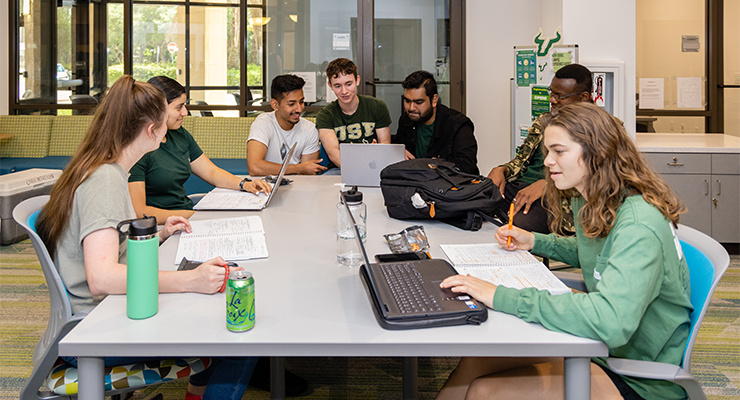6 Signs You Should Transfer Colleges
By Rachel Swearingen | Last Updated: Mar 5, 2025

You did it! You got into college, settled into your dorm room, and started taking courses. But something isn’t feeling completely right. Maybe your current school doesn’t have enough on-campus events or the location of your school isn’t going to offer you a lot of opportunities after graduation.
No matter the reason, you should feel like your college choice was the right one. If you’re feeling uneasy, it might be time to consider a transfer. Here are some common signs that it’s time to transfer universities.
Sign #1: You’re Not Engaged
Some universities may not offer all the organizations you’d want or have enough opportunities to get involved on campus. If you think your current school lacks in this area, it might be time to consider a transfer.
“I really was looking to be more involved, and I wanted to have a lot of presence on campus… I felt like at my previous institution, there just wasn’t a lot of student engagement,” said Taylor Wilkerson, current USF transfer recruiter and former USF transfer student. “I joined a few clubs when I started here. I was able to participate in sorority life and I was more involved with student games like basketball and football.”
You may find just the right fit for you at a larger school like USF, which has over 600 student clubs and organizations – from student government all the way to an Oreo Tasting Club.
Sign #2: It’s Not the Right Location for You
Some of us want to be a small-town girl living in a lonely world – but some of us want to be a city boy born and raised in south Detroit. In other words, if you aren’t happy with the area around your college, you might want to think about switching schools.
“I hear all the time from students in a smaller city in Florida that they’re really looking to go somewhere where there’s a lot of things going on… where there’s a lot more people and they can get more involved in the communities,” Wilkerson said.
As a transfer student, you should also consider location if you’ll be looking for internships or jobs later in your college career.
“Often, [transferring] is not so much just about school. They’re really looking for that big transition in life, to the future,” Wilkerson said.
Let’s say you attend college in a small town in Florida and you’re a marketing major. That small town may not have too many internship options for someone in marketing, but a larger, metropolitan area like Tampa Bay, home to several Fortune 500 companies, would have lots of opportunities. Finding congruence between your goals and location can make or break your college experience.
Sign #3: You Need Different Academic Opportunities
If your current school doesn’t offer the opportunities you need to achieve your goals, it might be time to look at transferring. Maybe you started at a community college to get your associate degree and discovered you wanted to keep progressing in your academic journey, or perhaps you decided to switch to a major your current school doesn’t offer.
Wilkerson said a lot of the students she speaks to are interested in transferring because they’re at a state college or junior college.
“They want to earn a bachelor’s degree where they probably didn’t have the opportunity, or [the colleges] have limited programs for students who are interested in earning their bachelor’s degrees,” Wilkerson said.
A university with more than 200 majors and concentrations like USF will have many more academic opportunities available, from biomedical anthropology to Latin American and Caribbean studies.
Sign #4: The Right Student Services Aren’t There
Clubs and majors are huge factors when choosing a university, but you also need the right student services. Not every school will have the resources you need, Wilkerson warned. For example, some may offer career services, but not to the extent you’d find at a larger institution.
For example, USF’s Career Services staff helps with job searching and interview preparation, and even has a clothing closet if students need help finding professional attire for work.
There are also other services you might need, like tutoring or writing help. Perhaps your school is doing the bare minimum to accommodate your accessibility needs and you’re looking for a place that can give you more.
Students don’t just need help with careers or school, though. Sometimes, life circumstances make it difficult to just survive while you’re going to school, and a larger university may be able to provide essential resources to students who need assistance. For example, USF has the Feed-a-Bull program, where students can go pick up food when they’re in need.
Sign #5: It's Difficult to Get Involved on Campus
A well-rounded student experience is key to having a rich, dynamic college experience. Getting involved in clubs, taking on leadership roles, or participating in athletics can help you learn and grow outside the classroom. Many college campuses provide opportunities to get involved, but only you can find your perfect fit.
While you shouldn't start applying to other schools just because your dream club doesn't already exist at yours, it's important to find a community in college. If the university you've been eyeing for a while has intramural sports teams, volunteer opportunities, or student organizations you can't wait to sign up for, that's worth taking seriously.

Sign #6: You Need More Support as a Veteran
Around 5 percent of undergraduate students are United States veterans. Those veterans often need levels of support and outreach that smaller schools can’t provide. Veterans may struggle with academic life or feel isolated, especially if they’re older than most of their fellow students. If you’re a veteran and struggling at your current school, consider looking for a veteran-inclusive university that offers more services and can help you.
At USF, there is an Office of Veteran Success with staff ready to help veterans who need assistance with career readiness, admissions assistance, and more. Our university also recently earned a Collegiate Purple Star Campus designation for its support of veterans and military families.
Things to Consider Before Transferring Schools
Before you transfer, plan for everything that’s about to change. Between cost of living, tuition, culture, and more, there will be a lot you’ll need to adjust to.
Wilkerson said she always tells her students to prepare to cover new expenses, as their biggest cost will be tuition and rent.
“I tell them to focus on where they’re living and to see the different prices. Compared to Madison, FL, [moving to Tampa] was a big jump.”
There’s also the cost of parking, getting adjusted to a larger campus, learning about all the options available to you, and so much more to consider.
Here’s the good news if you’re transferring to USF: we have a whole office dedicated to transfer student success, full of people who are excited to assist you and answer any questions you have. If you’re ready to start your application, apply now. We can’t wait to see you on campus!


